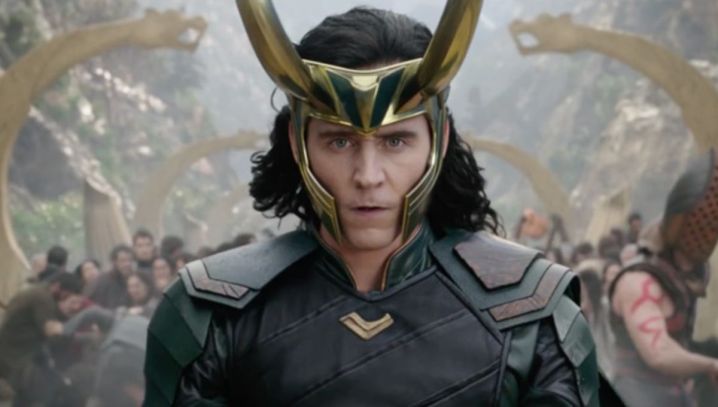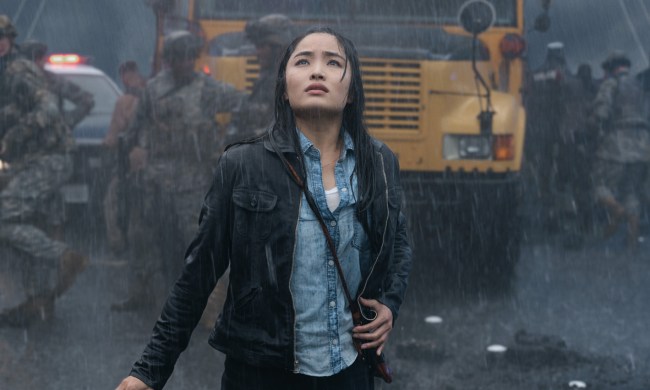Loki, Ultron, Thanos, and now … coronavirus?
When a threat has semmed too great for the heroes of the Marvel Cinematic Universe (MCU) to handle on their own, they’ve always rallied to defeat their mutual enemy — in some cases, pulling victory from the jaws of defeat even if they have to rewrite history itself. But they’ve never faced a villain like COVID-19, the real-world pandemic that could put the entire MCU in jeopardy.
Coronavirus chaos
As it currently stands, the three largest theater chains in North America have closed their doors for the foreseeable future, and the list of movies delayed by the coronavirus is getting longer every day. Films and television series in various stages of production have been shut down, while movies that were expected to arrive in theaters over the next few months — like Marvel’s Black Widow — have been pulled from the release calendar entirely.
At this point, it’s an understatement of superheroic proportions to say the spread of coronavirus has shaken up Hollywood in ways we never imagined.
While most studios are finding new premiere dates to squeeze their projects into later in the year or making the films available via on-demand and subscription streaming services, Disney’s Marvel movie-verse is unlike any other franchise — a fact that has often served it well, but could prove problematic in the current environment.
Marvel’s house of cards
Over the last 12 years, the MCU has grown from a series of interconnected films to a complicated web of narratively interwoven movies, television series, comic books, and other media. The plot of each project plays off the events chronicled in the projects that preceded it, making every new installment the next chapter in a single, continuing saga.

With 11 new movies and TV series set to premiere between now and the end of 2021, Marvel’s has mapped out a crowded timeline for the next phase of the MCU. Both Black Widow and The Eternals were scheduled to hit theaters this year (with the former now pulled from the calendar), while the Disney+ TV series The Falcon and the Winter Soldier and WandaVision were also slated to premiere at some point before the end of 2020.
After this year’s projects, Marvel has seven additional film and TV series premieres spread out across 2021, with many of the release dates separated by just a month or two. Up until now, that rapid-release strategy has played a big role in keeping Marvel at the forefront of audiences’ minds and at the top of the box office, but what happens when one (or more) of those projects suddenly get yanked out of the studio’s meticulously planned timeline?
Well, we’re about to find out.
An uncertain future
In just the last week, Marvel has postponed the release of Black Widow and halted production on both The Falcon and The Winter Soldier and the first film in its 2021 calendar, Shang-Chi and the Legend of the Ten Rings. With no end in sight to coronavirus-inspired theater closures and production delays, the window for Marvel to get the aforementioned projects finished and in front of audiences is rapidly shrinking — particularly if the studio wants to preserve the order in which they’re released.

Narrative continuity is a big part of the MCU’s appeal. Knowing what happened in Captain America: Civil War, for example, makes the events of Black Panther resonate that much more. The same can be said of the events in Ant-Man and the Wasp and Avengers: Endgame — which relied on events in the former to explain a key plot point in the latter. Remove one of those films from the mix, and the others either don’t have the same emotional effect or might not make any sense at all.
This approach has turned every entry in the series — both on television and on the big screen — into must-see material for anyone who wants to stay current with the overarching story being told in the MCU. However, it’s the continuity of that story that’s most endangered by the disruption the coronavirus has wrought.
Fortunately for Marvel, Black Widow is a prequel film set before the events of Avengers: Infinity War and after the aforementioned Civil War. We know where the movie’s main character ends up already, so the risk of toppling Marvel’s narrative house of cards is likely a lot less severe with Black Widow — but as with all Marvel movies, there’s a good chance that certain events depicted in the movie (particularly in post-credits scenes) could lay the narrative groundwork for another upcoming project.

Likely a more pressing concern is The Falcon and The Winter Soldier, which was expected to premiere in August but will likely be pushed back on the calendar. That live-action series for Disney+ will explore the aftermath of Avengers: Endgame for several key characters in the MCU, including the new owner of Captain America’s shield, Sam Wilson (Anthony Mackie). It is expected to be one of the key touchstones for the new status quo in the MCU, and the first chapter in the next phase of the Marvel saga.
So what options does Marvel have?
Moving targets
If Marvel is willing to gamble on the coronavirus threat diminishing within a month or two, there’s still time for Black Widow to get its theatrical release. The Eternals is currently scheduled to hit theaters in November, and there are plenty of weekends when Marvel could send Black Widow to theaters and it would still be the biggest release that weekend, regardless of whatever else is playing.
Filming has already wrapped on The Eternals, so that movie’s release date could be secure as long as the coronavirus shutdown doesn’t delay the postproduction phase too long. That leaves plenty of time for Shang-Chi to resume production and still hit its February 2021 opening weekend without impacting May 2021’s Doctor Strange in the Multiverse of Madness.

Of course, all of those possibilities tend to fall on the best-case scenario side of the coronavirus possibilities, and a lengthy shutdown that extends through the summer and into the fall could cause the entire schedule of Marvel movies to topple like so many dominoes.
Things get even more complicated on the TV side.
With The Falcon and the Winter Soldier scheduled to premiere on Disney+ in August and WandaVision premiering a few months later in December, that doesn’t leave much flexibility in Marvel’s rollout plans. Each series will feature six episodes released on a weekly basis, so it could be a mere matter of weeks — not months — between the end of The Falcon and The Winter Soldier and the start of WandaVision if both shows debut as planned.
That last part isn’t looking likely with The Falcon and The Winter Soldier currently in production limbo, meaning both shows could end up being bumped back in the calendar — possibly into late 2020 and early 2021. This could cause big problems for May 2021’s Doctor Strange in the Multiverse of Madness, as that big-screen feature will reportedly spin out of the events of the WandaVision series. The events of Marvel’s Loki series are also expected to factor into Doctor Strange in the Multiverse of Madness, meaning Disney could be forced to release both Loki and WandaVision on Disney+ with a bit of an overlap in order to get them out before Doctor Strange hits theaters.

It all adds up to a messy plan that’s only going to get messier as the shutdown continues, and we could be looking at a point when multiple Marvel movies and TV series get released in short order — and possibly on top of each other — in an effort to preserve the narrative continuity that’s so important to the MCU. As the window for an effective release plan gets narrower, the typical multi-month separation of Marvel projects could become a matter of weeks or even days.
And in the months to come, we could very well find out if Marvel fans can have too much of a good thing.



